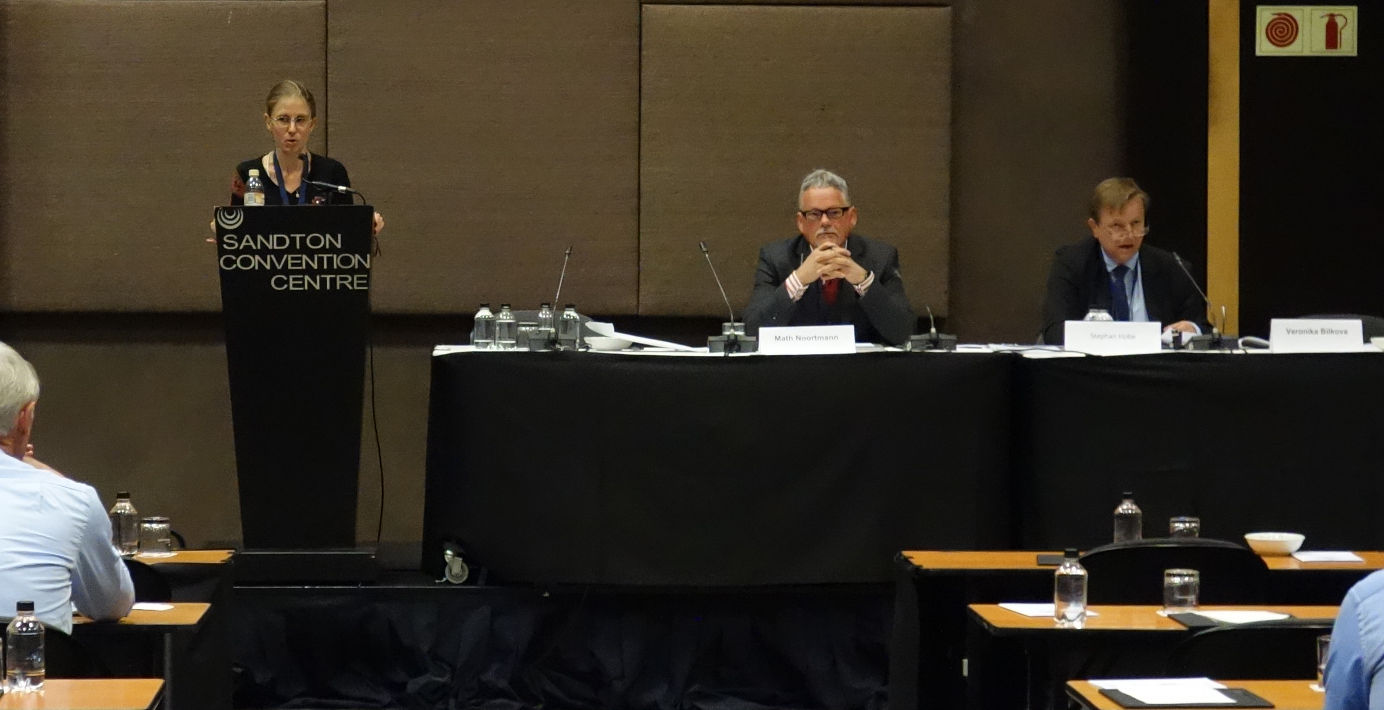ILA Conference in Johannesburg
On 7 – 11 August 2016, the 77th biannual conference of the International Law Association (ILA) took place in the largest city of South Africa, Johannesburg. Its Czech branch was represented by Associate Professor Veronika Bílková from the Institute of International Relations Prague.
The ILA is one of the biggest and oldest legal associations in the world. It was established in 1873 in Brussels and currently has some 3.500 members, who are united in 56 national or subregional branches. One of the national branches is the Czech branch. The ILA headquarter is in London, and the regular conferences take place every two years in various countries, following the rotation principle of regularly alternating between different regions. The ILA assembles academics and legal practitioners dealing with both international public and international private law. According to its Constitution, the ILA´s main objective is “the study, clarification and development of international law, both public and private, and the furtherance of international understanding and respect for international law”.
Some 200 participants registered for the 77th ILA biannual conference held in Johannesburg, but some national or subregional branches were nevertheless represented only by a single member or not represented at all. This was the case of the Czech branch, which was represented by Assoc. Prof. Veronika Bílková. Assoc. Prof. Bílková was a member of the Committee on Non-State Actors since 2008, and since 2015, she was the rapporteur of this committee – in this time period, the only rapporteur of any ILA committee to come from Central or Eastern Europe.
The Committee on Non-State Actors was established in 2008. In 2016, it came to the end of its standard two-mandate period (2 x 4 years). The Czech rapporteur therefore drafted the final report, which was formally approved in Johannesburg. The report sums up the main findings of an empirical research project relating to rights and duties of non-state actors that was carried out by the members of the committee in the previous years. It also contemplates how the view on the legal status of non-state actors is affected by the theoretical position one embraces. The report concludes by questioning the utility of the category of non-state actors for international law and recommending that the abandonment of this category be considered. In the future research should deal with concrete types of non-state actors (non-governmental organizations, multinational enterprises, etc.) rather than with the category of non-state actors as a whole, as its individual types have less and less in common. (Veronika Bílková)

Photo: Dr. Agata Kleczkowska